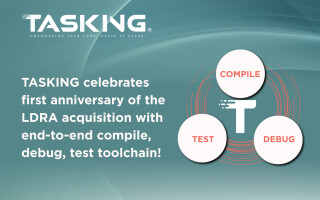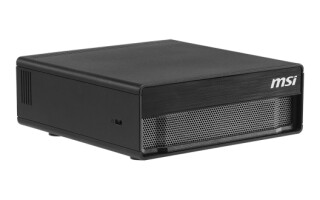Frequently Asked Questions About Custom SoCs
August 12, 2022
Blog

How does a company decide on whether to use an Application-Specific Standard Product (ASSP) or a custom System-on-Chip (SoC)?
This is an age-old question, and the simple answer is “Depending on what your end goals are, both ASSPs and custom SoCs can be a suitable choice.” However, it begs the question as to why custom SoC was introduced following the proliferation of standard silicon.
Changes Occurring in the Market Space
What we are witnessing today are big, fast paced technology innovations in power infrastructure, including servers, switches, storage, and accelerator cards. Developments are also gaining momentum in the automotive and 5G domain and within this shift companies are seeking to develop their own custom chips.
For many companies attempting to gain an edge over their competitions, general purpose chips are insufficient in meeting the massive, and often specific, computational needs. As a result, companies have begun to design their own versions of these chips, targeting them to use-cases specific to their products and services, offering both performance advantages and cost efficiencies.
How Do Companies Justify the Huge Capital Investment for Custom Chip Development?
It all started a while back when one mobile phone maker made a move to secure its competitive advantage by investing in an internal team of chip developers. The result they achieved by designing their own chips for specific compute needs was a huge success in both the devices’ performance and efficiency. As a result of this major phone maker’s great success, many followed suit.
Auto OEMs are also looking into making the shift from standard to custom silicon as cars move toward being fully autonomous.
For example, improving the “seeing/vision” capabilities of advanced driver assistance systems (ADAS) is extending beyond cameras and LiDARs by incorporating smart sensors to handle complex driving scenarios that the auto industry coins Level 4, or “high” automation.
A vehicle’s main ADAS SoC level needs multiple optimized sensor hubs for RADARs and LiDARs. In low-speed environments such as parking lots, sensors using short-range radar imaging detection can scan the surroundings for in-vehicle passengers vitals, pedestrians, and obstacles. At longer ranges, the radar chip enables adaptive cruise control, blind-spot detection, collision warning, cross traffic alerts, and autonomous emergency braking.
For self-driving cars, features and performance are main factors which separate one vehicle from another. Tesla recently announced a custom-designed AI chip “Dojo” for full self-driving capabilities in their vehicles. The new custom chipset is reportedly 21x more powerful than the previous set and significantly more efficient.
In addition to being a crucial component towards full-self driving capabilities, autonomous vehicles OEMs aim to develop proprietary chips to beat out their competition. More and more car manufacturers are also realizing that general purpose chips offer features that cater to multiple customers, which not only limit their product competitiveness but restrict them to the suppliers’ timelines.
A Case in Point – Cloud Service Providers
Enterprise cloud service providers are now designing their own AI accelerator chips prompted by the push to achieve optimized performance, power, and interoperability.
In the cloud computing world, custom chip in use at data centers offer a competitive advantage in both cost and efficiency. Processors need to handle data-intensive workloads in different usage areas such as application servers, high-performance computing (HPC), CPU-based machine learning (ML) inference, video encoding, electronic design automation, gaming, open-source databases, in-memory caches, and more.
An example is Amazon Web Services (AWS). Rather than relying on general purpose processors limiting both the server and service performance, Amazon decided to develop their own processors, the AWS Graviton series, to power its EC2 secure cloud services.
This decision made by Amazon to develop its own SoC offers many advantages (*Source: siliconangle.com):
- Edging out their competition with 40%* greater price-performance
- Improved machine learning and cryptographic workloads
- Ability to scale quickly boosting quality and lowering annual failure rates
- Electronic design automation via the cloud improving accurate tape out
- Enabling branch office communication via VPN or Direct Connect without MPLS
Is Hardware Necessary? Why Not Simply Rely on Software Alone?
Even the most powerful software needs the right hardware to operate effectively. As more and more consumers are subscribing to high-density, high-definition streaming media and video conferencing platforms, software needs computer hardware, including processors, memory, video cards, and sound devices to handle workloads more efficiently.
As software demands increase, building specified chipsets such as SoCs will improve the efficiency and output of machines running the software.
The most compute intensive applications running AI-based software benefit tremendously with custom chips as exemplified by cloud service providers. Over the recent years, many large software businesses are investing into hardware for future, long-term growth. By combining their software capabilities with custom SoCs, companies gain competitive advantages over the competition while expanding their own unique product and services offerings.
Other Benefits of Custom SoCs
Custom SoCs are designed to meet volume demands for specific applications in order to optimize performance, power efficiency whilst lowering cost. With the current pace of new product development, custom chip may be the ideal option.
Oftentimes a company may start from using standard products and later switch to custom chips to justify volume pricing. Now with the fast pace of innovation, it's becoming more complicated and costly for ASSP vendors to keep pace with what's required.
Some of the Custom SoC Benefits:
- Lowering the overall product cost by replacing many discrete components with one chip
- Reducing the component count, complexity, and PCB size, especially as leading processes move towards 7, 5, 3mm, and beyond.
- Improving reliability – a conventional PCB with hundreds of individual components have more points of failure and custom silicon can remove them
- Protecting the product, making it harder to perform reverse engineering and copy
- Reducing the complexity of the supply chain, assuming complete ownership of the chip life cycle, ensuring long life supply
- Making the product more compelling and differentiated by adding new features unavailable in standard products
- Combining digital intelligence with analog sensors to make a device smart
- Meeting performance and cost requirements for a specific application or product that are not possible with off-the-shelf components
Reducing a product’s number of parts makes the product less susceptible to supply chain glitches. By moving to a single-chip solution, customer can reduce the number of components needing to work together. The reduced complexity also affects the supply chain, which is drastically streamlined until the fabrication works on a single component at a single site. Control is tightened, and reliability improves since a company is not depending on different vendors for different parts but just on one’s own silicon.
Test design of a single chip will also require fewer re-spins because it is more challenging to reverse-engineer a system based off discrete components than off of a single piece of silicon.
At the end, it’s still important noting that a company should consider its product strategy and market demand before building a custom chip. However, when it does make sense to do so, there can be many great benefits that come with custom SoCs.
What makes Socionext different from other ASIC suppliers is that even though the company’s primary focus is on helping companies design custom SoC, it also has a long history in developing ASSPs. Additionally, customer benefit from Socionext’s extensive expertise to define and propose SoC architecture that are fully optimized to meet their exact needs. With its distinctive “Solution SoC” business model, Socionext collaborates with customers from the early stages of the development process and provides them with the support required to help differentiate their products and services.
Socionext offers the following:
- Ability to meet customers' special design and development needs with expertise and guaranteed long-term supply.
- Experienced in developing high-performance custom SoCs by utilizing its multi-core design technology to enable customers to reduce the size and power of their devices.
- Ability to integrate core technologies into a complete system with solutions such as communication infrastructure (LPWA/HD-PLC, satellite communication) and in-vehicle radar.
For businesses looking to build custom SoCs, Socionext is here to meet their needs.
Harmel Sangha is the Sr. Director of Marketing at Socionext America with 20+ years of experience in IP and ASIC engagements with tier one enterprise customers in networking, storage, compute, and wireless markets.





